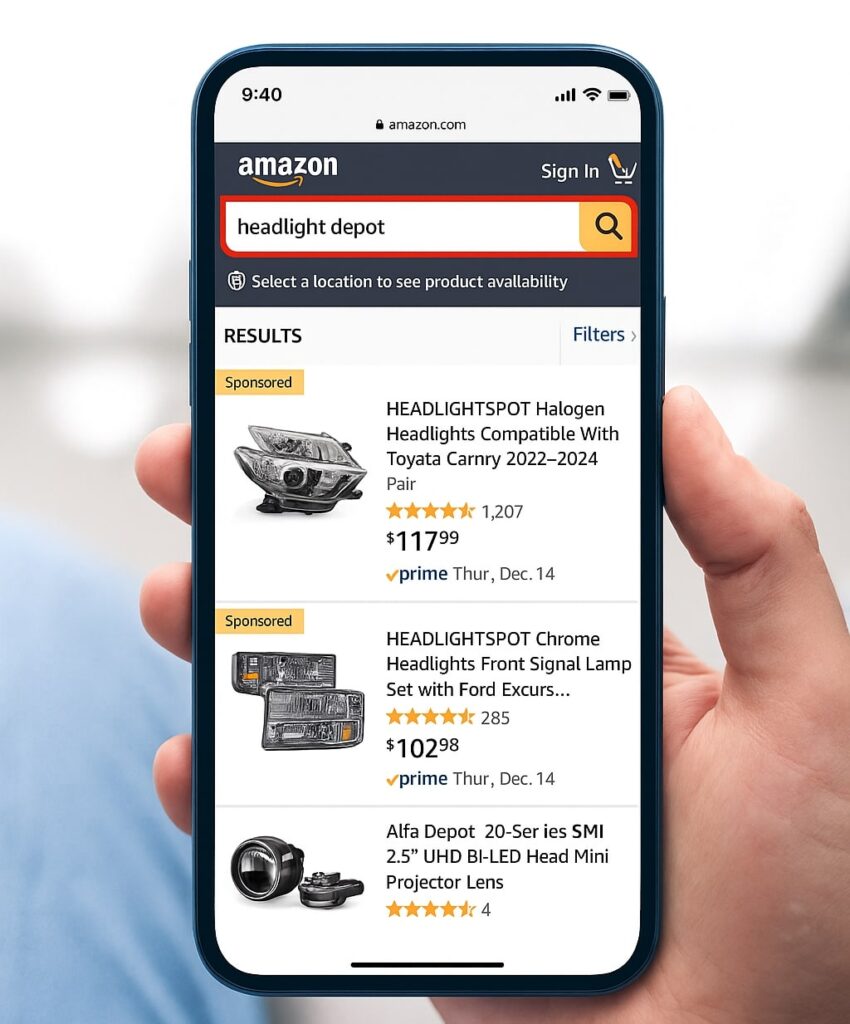Struggling with Amazon ads for your fragrance brand? Discover expert tips to master perfume ad campaigns, avoid common money-wasting traps, and boost sales.

Do You Want to Start Amazon Ads as a Fragrance Brand? Here’s What You Need to Know
Running ads as a Fragrance brand on Amazon sounds easy: launch a campaign, get clicks, make sales. But the reality? It’s not that simple.
If you’re just getting started with ads, this blog post is for you. We’ll break down how to approach Amazon ads specifically for the Fragrance industry, and how to avoid the common traps that waste your money, as well as tips to help you make more.
This isn’t about bidding more or throwing a big budget at the problem. It’s about understanding how perfume buying works online and what that means for your ad strategy.
Why Fragrance/Perfume Is Hard to Sell (And Why Ads Often Fail)
Before you even run your first ad, it’s important to understand why Fragrance /perfume is different from most products:
1. Customers Can’t Smell the Product
The biggest challenge is obviously people can’t test or smell your perfume online. This makes it hard to convince them to buy, especially if they don’t know your brand.
2. It’s a Competitive Category
Perfume is a luxury product, and the market is filled with big brands. They already have great images, reviews, and trust.
If your ad looks generic, you’ll get ignored no matter how much you bid.
3. Perfume is an Emotional, Trust-Based Purchase
Unlike tech or groceries, perfume is about feeling elegance, personality. If your ad doesn’t trigger emotion or trust, most people won’t click.
So, How Do You Run Amazon Ads That Actually Work for Perfume/fragrance niche?
Here are 5 tips, designed specifically for perfume brands, that go beyond the basics:
1. Avoid Broad Keywords Like “Perfume” Go Specific and Intent-Based
The keyword “perfume” sounds great, high volume, lots of searches. But it’s too broad, very expensive, and filled with big-brand competition. You’ll barely get clicks, and barely any conversions.
Instead, go for long-tail keywords that match buying intent. These are longer, more specific phrases that shoppers type when they’re ready to buy.
Examples:
- “long lasting perfume for men”
- “fresh scent for daily office wear”
- “affordable everyday perfume for women”
2. Make Separate Ad Campaigns for Gifting
Perfume is one of the most popular gift categories on Amazon, but many new sellers treat every shopper the same.
Create dedicated ad campaigns just for gift buyers, using keywords like:
- “perfume gift for friend”
- “birthday gift for her under 100$”
- “anniversary fragrance”
Highlight features like beautiful packaging or “ready for gifting” in your ad copy and images.
Gift buyers are often ready to buy immediately especially during holidays or special occasions.
3. Improve Your Product Listings Around High-Intent Keywords
This one’s easy to miss but it’s crucial.
Even if you bid on great keywords, Amazon won’t give you the top ad placements if your listing content doesn’t match the search terms.
Make sure your:
- Title includes your main keyword (e.g., “Long Lasting Perfume for Women – Floral, Daily Wear”)
- Bullet points repeat your top keyword themes (e.g., “perfect gift option,” “fresh scent for work,” “premium fragrance under 100$”)
- Backend keywords include spelling variations, synonyms, etc.
Why it works: Amazon’s ad system checks for listing relevance. If your listing content matches the keyword exactly, your ads will perform better, get cheaper clicks, and convert more.
4. Use Branded + Competitor Keywords to Capture Intent
If you have your own perfume/Fragrance brand name (even if it’s new), always run ads on your own brand name as a keyword so you own your traffic and prevent competitors from stealing your customers.
Example: If your brand is “Myra Scents,” run ads on:
- “myra perfume for women”
- “myra oud fragrance set”

5. Target Seasonal and Event-Based Keywords for Quick Wins
Perfume sells extremely well during seasonal events and gift-giving occasions but most new sellers miss this by using the same keywords year-round.
Start targeting event-specific keywords that shoppers search during holidays, festivals, and milestones.
Examples of seasonal keywords to use:
- “valentine’s day gift for her perfume”
- “wedding perfume for bride/groom”
- “Christmas perfume gift set under $25”
- “black friday fragrance deal”
Create separate campaigns just for these seasonal keywords. You can schedule them to activate during peak weeks, so your ads show up exactly when buyers are ready.
Why this works:
Seasonal keywords come with strong buying intent and often lower competition compared to year-round generic terms like “perfume.” That means cheaper clicks, higher conversions, and a better shot at making a profit quickly.
Wrapping Up: From What We Learned, Keyword Strategy Is the Key to Profit
Running ads for products isn’t about spending more, it’s about spending smarter.
If you’re not making money yet, the solution isn’t just launching more campaigns or increasing bids. It’s understanding how real shoppers search, and aligning your keywords, listings, and ads to match that intent.
